Iceland is perhaps best known for its “Land of Fire and Ice” nickname, earned from its long history of eruptions at volcanoes with tongue-twisting names. Eyjafjallajökull, anyone?
But keep in mind that, like the northern lights, volcanic activity doesn't happen on demand. That said, eruptions do happen! You'll be able to safely visit volcanic places on your trip to Iceland, including both ancient and active sites.
Let's take a look at 8 impressive volcanic attractions you could check out in Iceland.
- Learn about the latest volcanic activity on our eruption news page
-
Explore exciting volcano tours in Iceland
Good to know: At Nordic Visitor, we stay up-to-date with volcanic activity in Iceland. We also make sure our clients are informed about any potential disruptions to travel plans and take care of any itinerary changes.
1. Eruption on the Reykjanes peninsula
Located in the southwest of Iceland, this region has plenty to offer on your adventure. Here, you’ll find the Keflavík International Airport, the Blue Lagoon and the Fagradalsfjall volcano.
Before 2021, this volcano lay dormant for around 800 years. But now, the Reykjanes peninsula is active, with several eruptions in the area in recent years. This has meant the area, once seen as a sleeping giant, is now a hub of intense geological activity.
This is all thanks to its location on the Mid-Atlantic Rift, where the North American and Eurasian tectonic plates drift apart. That’s why you’ll see active volcanoes, moss-coated lava fields and cone-shaped mountains.
To stay up-to-date with the latest information about volcanic events in Iceland, check out the following sites:
- Safe Travel Iceland – for safety alerts
- Icelandic Met Office – for information on seismic activity and the weather
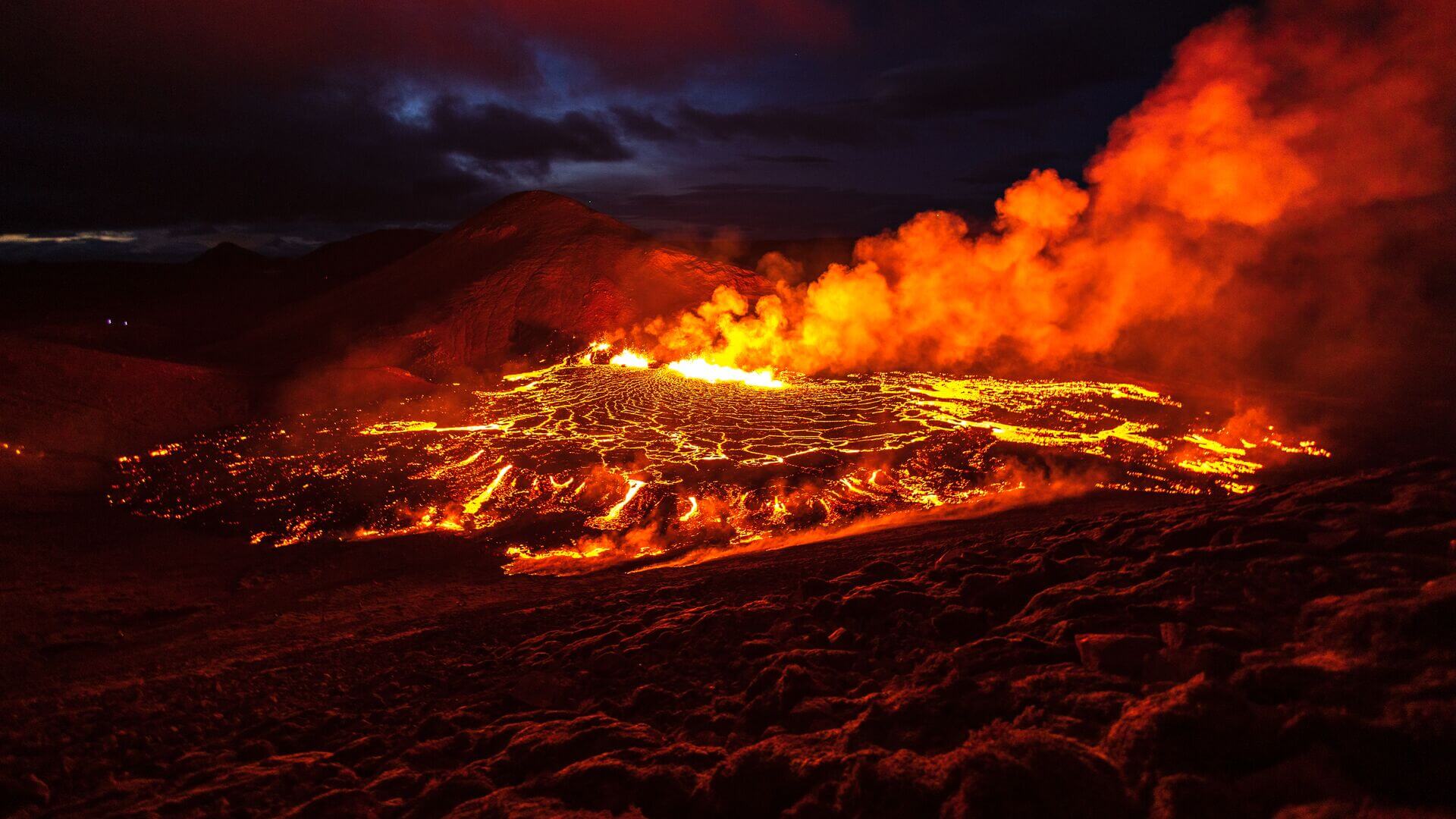
2. The Volcano House in Reykjavík
Before venturing into the Icelandic countryside to see actual volcanic sites, why not take some time to learn about volcanoes in the capital city?
Located right by the old harbour in the Reykjavík city centre, the small Volcano House museum features exhibitions on Iceland’s geological history as well as a collection of volcanic rocks (that you can touch!).
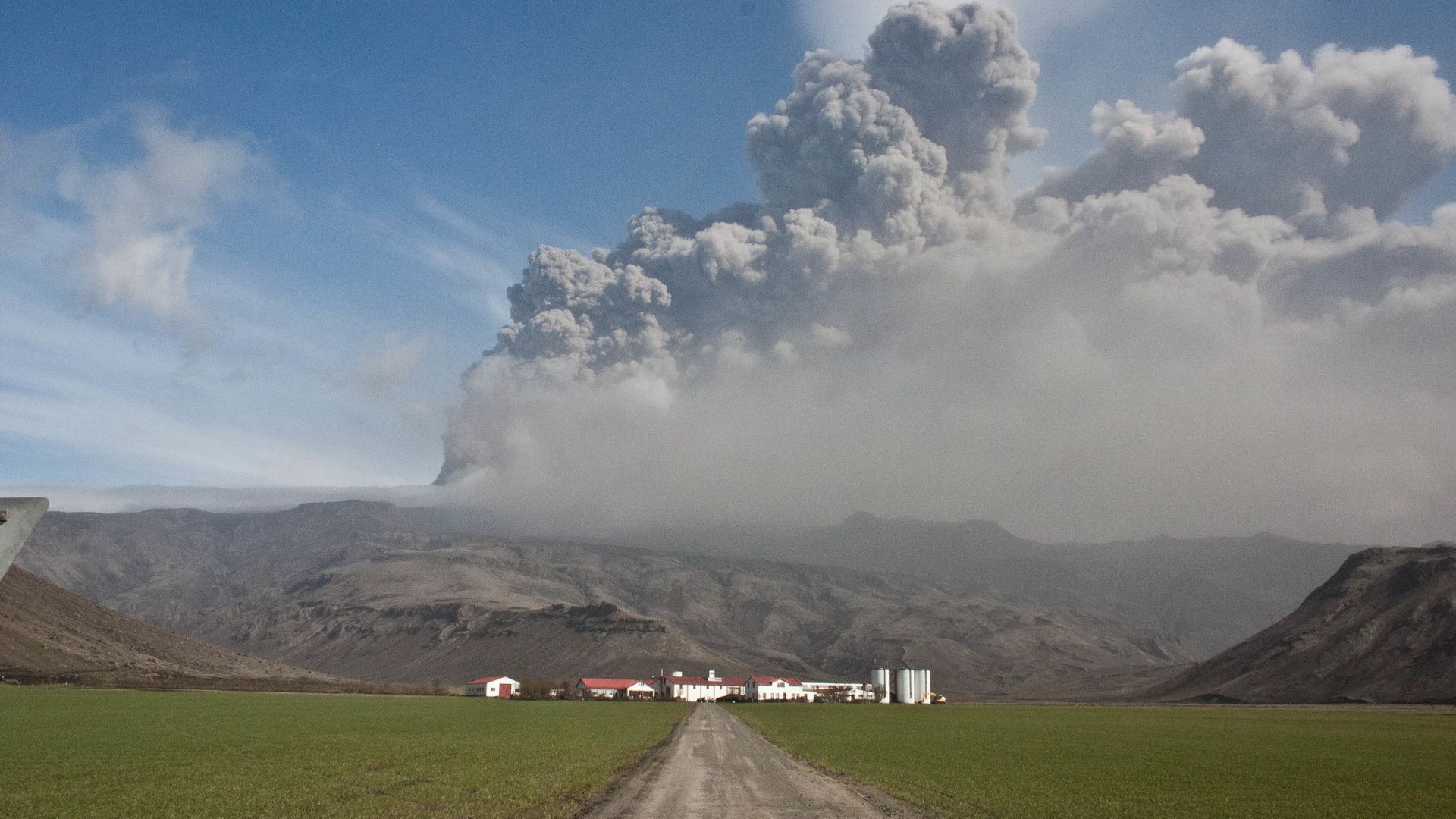
It also screens two documentaries about famous eruptions. The first one is about the sudden eruption in the Westman Islands (which you can read about below). The other covers the famous 2010 volcanic eruptions at Eyjafjallajökull and Fimmvörðulháls.
- Discover volcanoes as part of a self-drive tour in Iceland
3. The Eldheimar Volcano Museum in Heimaey
Vestmannaeyjar, or the Westman Islands, is a stunning archipelago off Iceland’s south coast. Sometimes called “Pompeii of the North,” all of the archipelago’s islands have evolved from underwater eruptions.
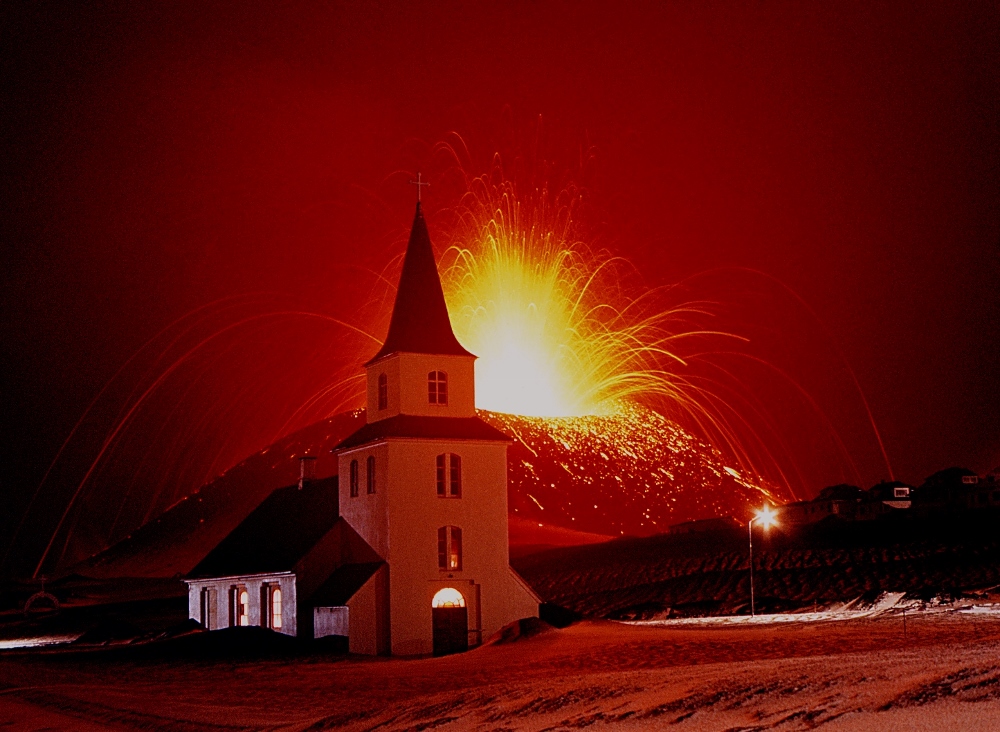
Heimaey, the only inhabited island, was the site of an eruption in 1973. It buried 400 buildings under thick lava, some of which have been partially uncovered and preserved.
The Eldheimar Volcano Museum in town focuses on this event, which is today considered one of Iceland’s largest natural disasters. The exhibit looks at the lives of the residents before the eruption that saw them evacuating their homes in the night and never being able to return.
4. The Lava Centre in Hvolsvöllur
If you came to Iceland to experience the Land of Fire and Ice, the Lava Centre museum in South Iceland is worth a visit. This innovative museum opened in 2017 not far from Mount Hekla, an active volcano that was considered to be the gateway to hell in the Middle Ages.
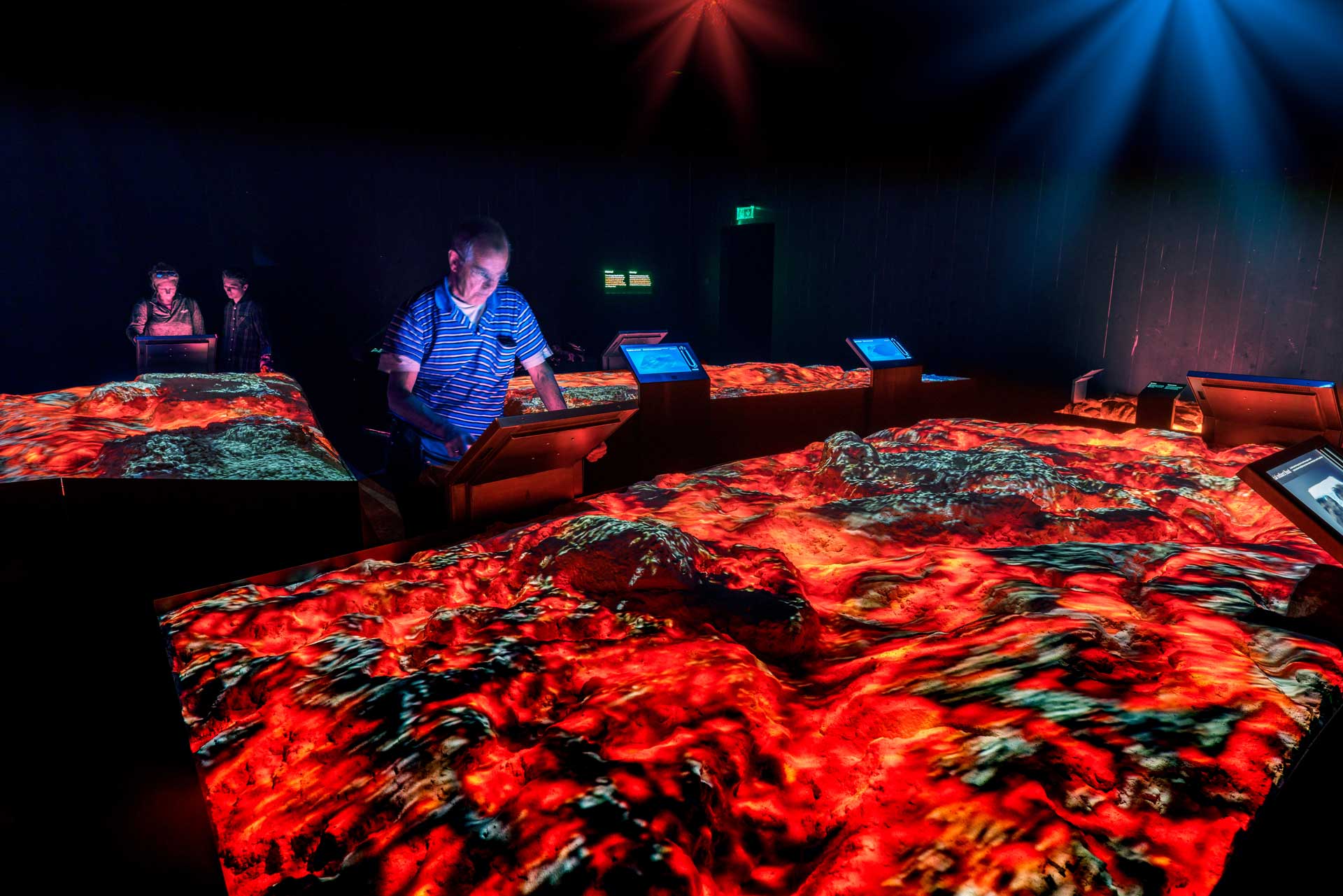
Inside, the interactive, state-of-the-art exhibit depicts millions of years of Icelandic volcanic activity. It covers earthquakes, eruptions, glacial floods, rift systems and the formation of Iceland's landmass.
If all that tectonic rumbling makes your stomach rumble, you can grab a bite at the onsite Katla Restaurant, aptly named for one of Iceland's largest volcanoes.
- See the country with a local expert on one of these privately guided Iceland tours
5. Snæfellsjökull National Park in West Iceland
Located at the tip of the Snæfellsnes peninsula in West Iceland, the terrain of Snæfellsjökull National Park looks as though it was ripped from prehistoric times.
The park is named for the prominent, glacier-topped Snæfellsjökull volcano, which Jules Verne famously used as the setting for his classic novel Journey to the Center of the Earth.
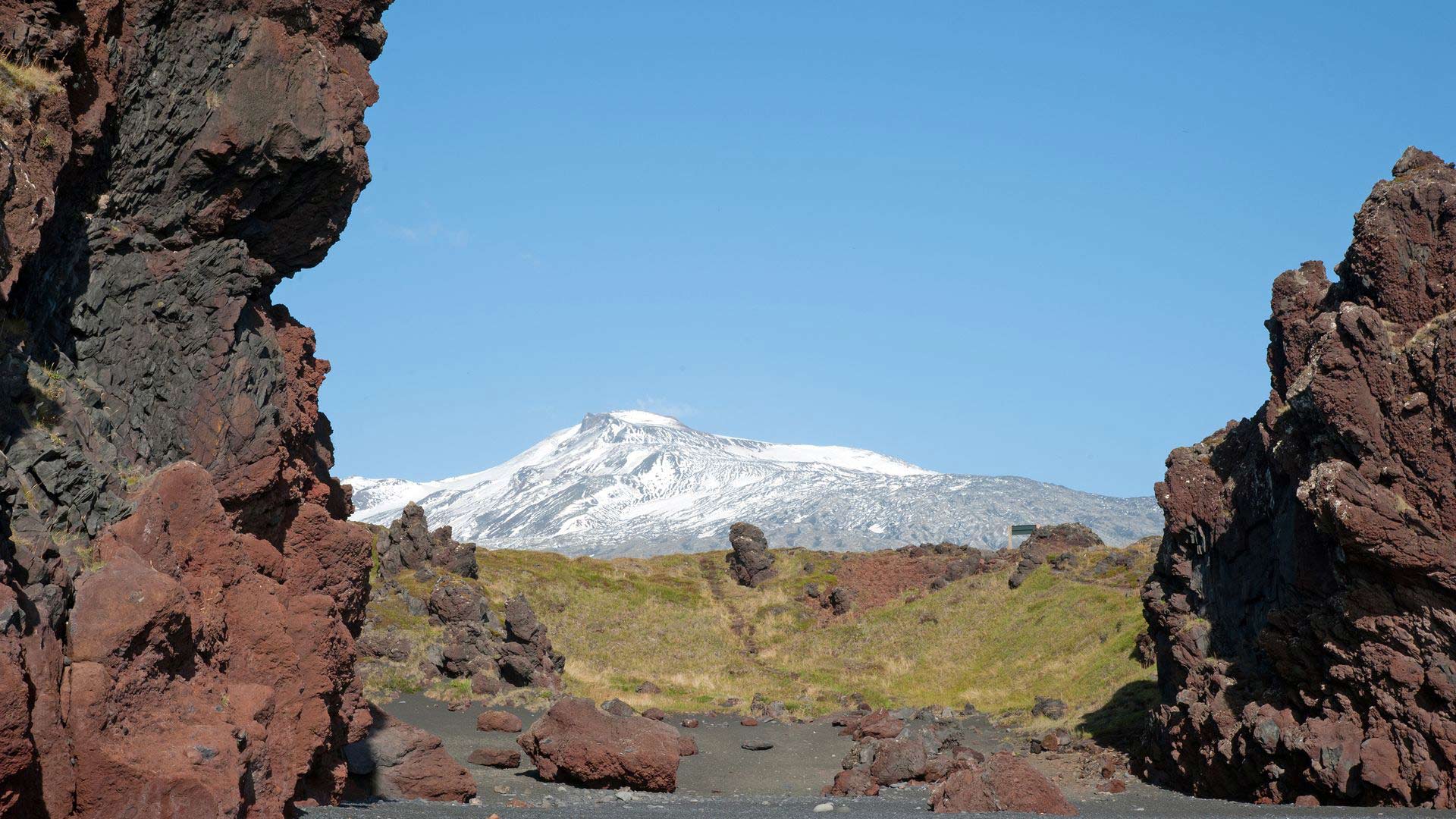
This park boasts many other unusual volcanic landforms to explore, such as Djúpalónssandur beach with its smooth black pebbles and "lifting stones", and the beautifully secluded Dritvík cove. You could also discover the jutting cliffs at Lóndrangar and the extensive lava fields surrounding the volcano.
For a closer look at the area's volcanic history, you can even join a guided tour of the Vatnshellir or Víðgelmir cave.
6. "Inside the Volcano" tour near Reykjavík
Not only can you walk into a glacier in the Land of Fire and Ice, but you can also go deep inside a dormant volcano.
The Inside the Volcano day tour is a real-life journey to the centre of the earth. You descend 120 metres (394 feet) via a cable lift into the ancient magma chamber of the Thrihnukagigur volcano. From the bottom of the cave, you’ll be able to marvel at the colourful lava-rock walls.
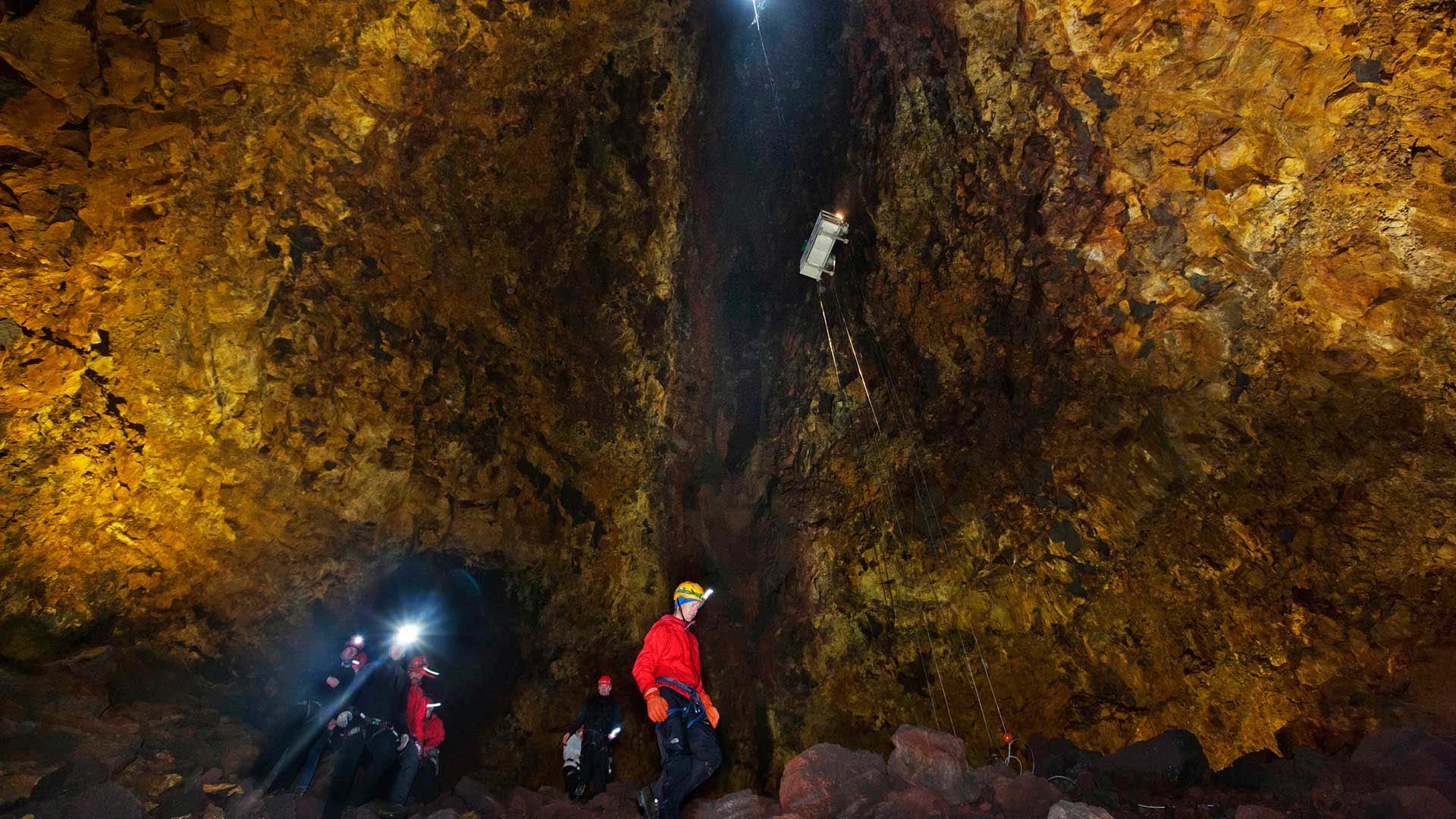
For a similarly adventurous experience not far from this volcano, we recommend a guided "Lava Tunnel" tour inside the Raufarhólshellir lava cave.
- Experience the Land of Fire and Ice on a guided small group tour of Iceland
7. Hverfell volcanic crater in North Iceland
The Lake Mývatn area of North Iceland is a hotbed of unusual volcanic terrain and geothermal activity.
At 1 kilometre (0.6 miles) in diameter, Hverfjall is probably the biggest tephra crater in Europe, making it well worth a visit. Located nearby the popular Dimmuborgir lava formations, this enormous crater was formed in an explosive eruption some 2,500 years ago.
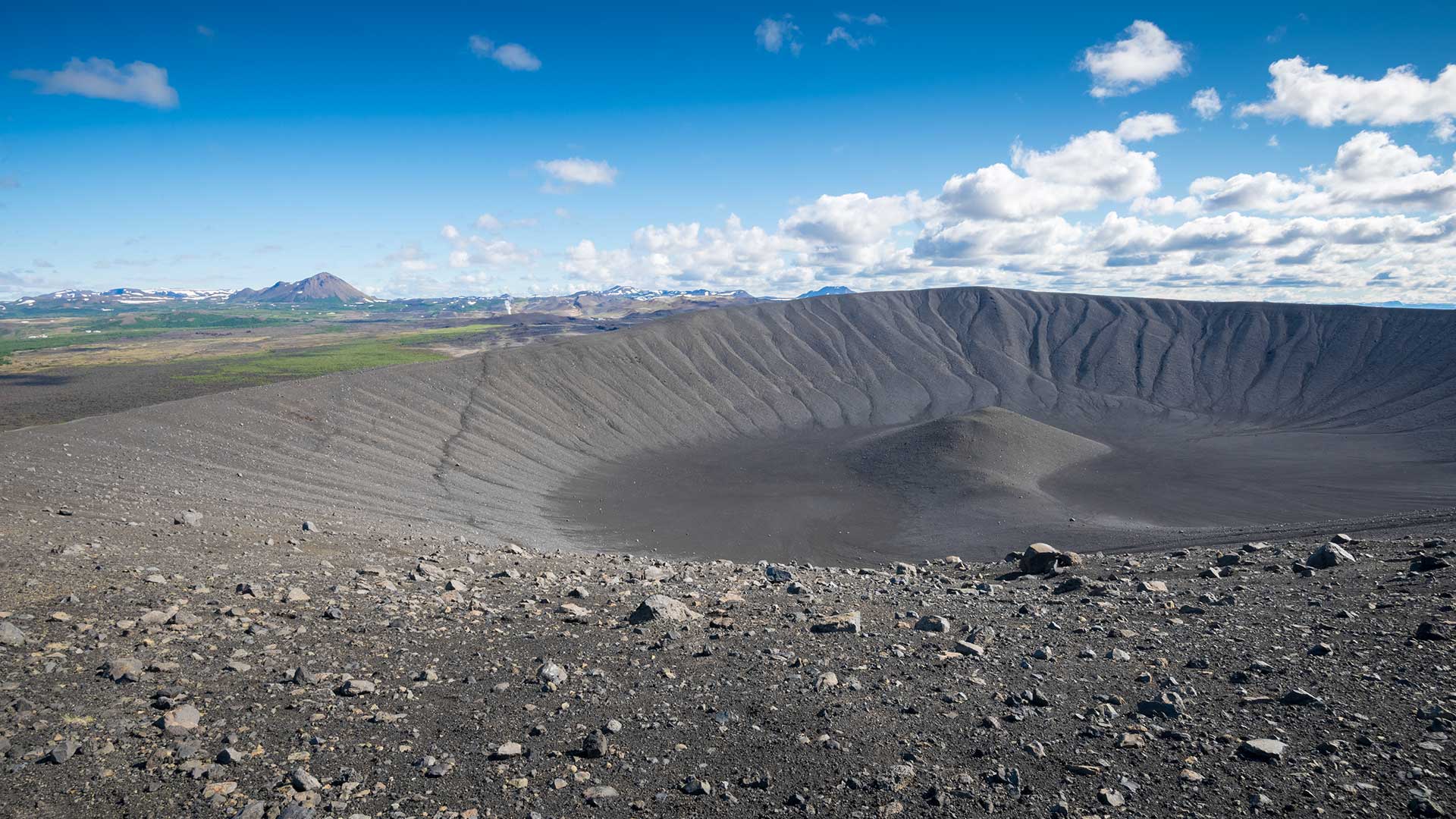
8. Krafla caldera in North Iceland
Another major Lake Mývatn area volcanic attraction is Krafla, a massive caldera with a diameter of 10 kilometres (6.2 miles) and depth of 2 kilometres (1.2 miles).
Situated along a 90-kilometre (56-mile) long fissure zone, it erupted a staggering nine times between 1974 and 1984, with 29 total eruptions in recorded history. Among these events is the “Krafla Fires,” a long-lasting eruption from 1977 to 1984.
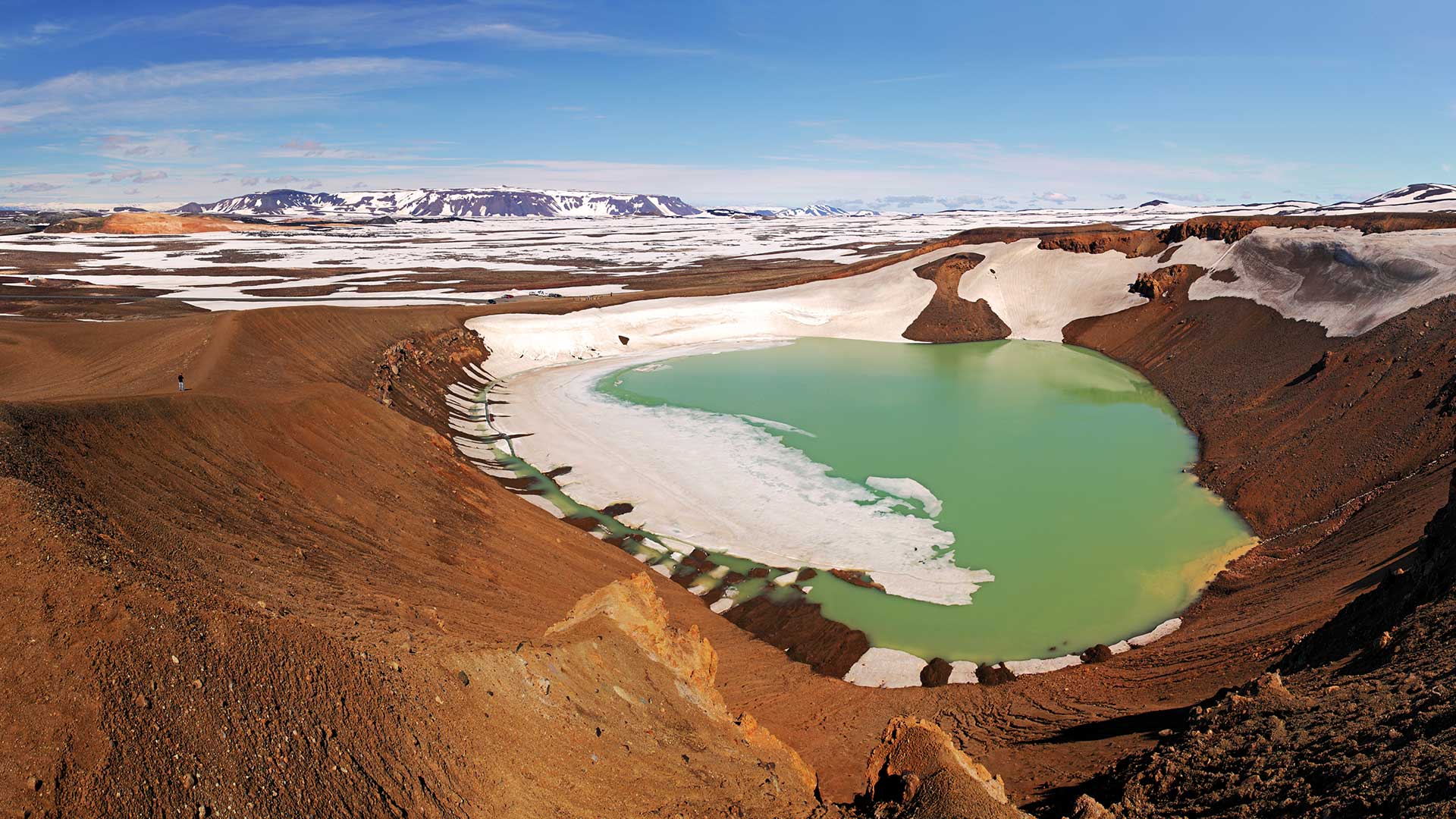
On the northwest side of the Krafla caldera is Víti, an explosion crater 300 metres (984 feet) in diameter with a greenish-blue lake inside of it. The name Víti, meaning “Hell” in Icelandic, comes from the old local belief that the underworld was located under the volcanoes in this area.
From the Krafla parking area you can walk to the edge of the rim on a marked path, guiding you through sulphur vents and rocks that are still warm to the touch from the Krafla Fires.
Want more volcanic adventures?
You could witness breathtaking natural wonders in Iceland. Imagine exploring the active Fagradalsfjall volcano on the Reykjanes peninsula, or learning fascinating stories at the Eldheimar Volcano Museum.
Each place tells a unique part of Iceland's geological history. Book an Iceland volcano tour with Nordic Visitor, and you’ll discover the incredible landscapes shaped by nature's forces.
Note: Never attempt to hike in the highlands or on glaciers without a professional, licensed guiding service.
Learn more about the Land of Fire and Ice: contact us to book a trip.
